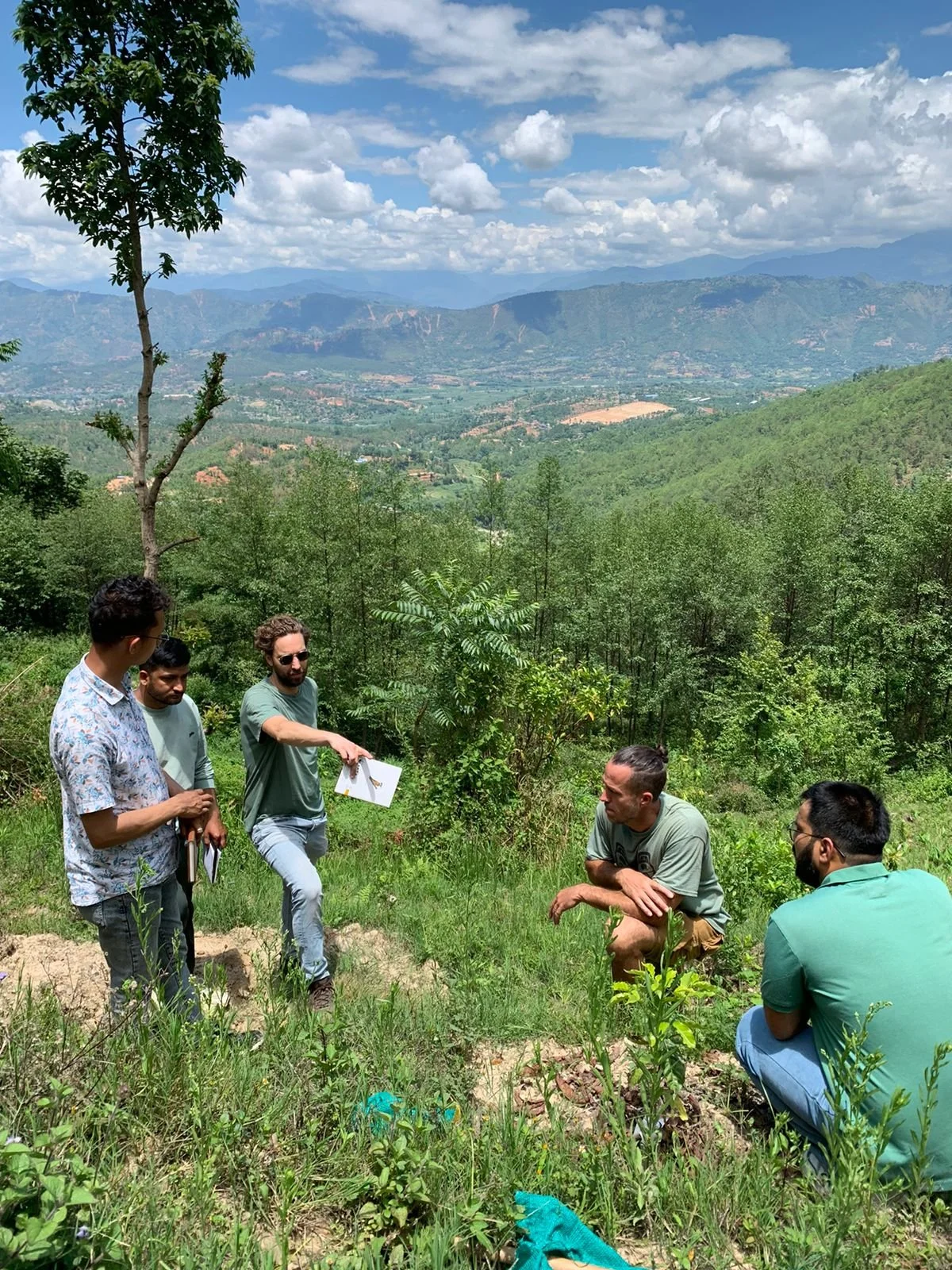Cultivating Resilience: Latest Updates from Our Nepal Agroforestry Project
As we navigate the busy harvest season, our teams are adapting and advancing with a focus on practical application and community engagement. From protecting new growth to celebrating the first harvests, the project is starting to take root in exciting ways!
Harvesting Abundance in Dhulikel
In Dhulikel, the recent heavy rains have been testing the community’s adaptability. Farmers are actively repairing land affected by a neighbouring landslide while demonstrating their commitment to protecting the soil. Throughout these ongoing challenges, they have continued to diligently mulch coffee plants and apply green nets to shield these plants from the sun.
This hard work is leading to evident results. The harvest of ginger and turmeric is now underway, with noticeable improvements in quality! These improvements are a testament to the positive effects of regenerative practices being implemented.
While the rains have caused slight delays, there are ongoing plans for the upcoming planting of chilli akabari and mustards. With growing market demand for this chilli, training farmers to cultivate it is part of the strategy to strengthen their economic resilience.
First Fruits in Sunkhani
In Sunkhani, new beginnings are taking shape. A new seedling nursery is being established, complete with four small tunnels to boost production. Alongside these infrastructure developments, farmers are also engaging in knowledge-sharing. A recent training on mulching and vermicompost has begun, empowering farmers with the skills to strengthen self-sufficiency.
The cowpea planted to enhance soil nutrients back in September has also been successfully harvested! A regenerative approach aims to diversify revenue streams for farmers to build economic resilience, and this is a clear example of how complementary species both enhance soil health while boosting the local economy.
Further building self-sufficiency of the farms, the team recently constructed a rainwater harvesting pond, which has now reached full capacity. This project takes advantage of Nepal’s heavy monsoon season, streamlining irrigation for the seasons to come.
Empowering Communities Through a “Train-the-Trainer” Approach
At the heart of both model farms is a commitment to empowering communities beyond the field. The training sessions, including mulching and vermicompost in Sunkhani, follow a “train-the-trainer” model. The approach builds internal capacity by equipping farmers and community members with the tools to transfer this knowledge to the rest of the community and become agents of a regenerative future.
Looking ahead
As we transition from the intensive harvest season, our efforts will now focus on capturing key learnings and building momentum for the future. In the coming months, we will continue conducting interviews for the FAO Tape analysis and look forward to launching further trainings as we anticipate more favourable conditions ahead.
Stay tuned for more updates as we continue to cultivate resilience in the majestic mountains of Nepal!




